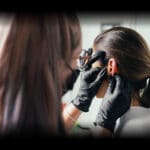We celebrate Pierce Your Ears Day on September 2 every year. This holiday spreads awareness about ear piercing, including the ritual and historical aspects of this body modification. It is one of the things practiced by people worldwide for various reasons. Some do it as a fashion statement; others do it to honor their ancestors. Many do it on a whim because it sounded like a clever idea at the time. Regardless of the motivation, ear piercing has been part of human history for a long time. People of different races, backgrounds, and genders have pierced their ears for millennia.
History of Pierce Your Ears Day
Pierce Your Ears Day is celebrated on September 2 each year. This is the day to remember where ear piercing comes from and maybe even get your ears pierced! For thousands of years, human beings have practiced ear piercing. The Samburu warriors of Kenya pierced their ears with large ivory plugs to signify their toughness and bravery. The Egyptians and Romans wore gold earrings as a status symbol to display their wealth. Ancient murals in Persia depict warriors with pierced ears. Native American people often wore earrings made of bone, glass beads, and colorful feathers.Earrings have always been popular for various reasons. Some civilizations wore them as mere decorations, while others reserved them for spiritual leaders who used them as charms. Sailors wore earrings in one or both ears as a sign that they had traveled far and wide on the high seas. In 16th Century Europe, noblemen who served in the King’s court had pierced ears. The punk movement that gripped the Western world in the 1960s and 1970s led to many youths getting ear piercings, much to the dismay of their conservative parents. Today it is highly fashionable to have your ears pierced; parents even have their babies’ ears pierced at six months or younger. It is unlikely that there is any country where ear piercings are not commonplace.Ear piercing techniques have come a long way from the old, rudimentary methods. The process is much safer and healthier now. There is little risk of infection or mutilation. That is if you go to a competent, qualified professional. Almost every tattoo parlor offers ear piercing services, and many chemists do it too. It is quick and completely harmless when performed in a sterile environment.
Pierce Your Ears Day timeline
The mummy of Ötzi the Iceman, a man who lived around 3000 B.C., is found with ear piercings.
Evidence of Egyptians piercing their ears is shown in King Tut’s mummy, which had elaborate gold earrings.
Julius Caesar makes gold earrings popular again.
Upper-class gentlemen in Renaissance-era England sport earrings made of gold, pearl, or stone.
Pierce Your Ears Day FAQs
When can you pierce your baby’s ears?
Although you can pierce your baby’s ears anytime, research shows that the best age is at two months, which coincides with the baby getting their first round of vaccinations.
Can you shower after getting pierced?
If the piercings are recent, you won’t have to take them out when showering. Showers clean out any crust or debris, which helps the healing process.
Should you rotate your ear piercing?
There is no need to do this. It could damage healing spots and may even lead to scarring or infection. However, if the professional who did your piercing recommends it, it may be a good idea to listen to their advice.
Pierce Your Ears Day Activities
-
Get your ears pierced
What better way to celebrate Pierce Your Ears Day than getting your ears pierced? You can go for a modest stud or a more eye-catching design. The options are limitless.
-
Educate others on ear piercing
Pierce Your Ears Day is the perfect time to spread awareness about ear piercing. Teach others about the history of ear piercing and how to do it safely.
-
Learn about ear piercings in different cultures
The details we’ve mentioned in this article are a good start, but there’s so much more to learn about piercings through different periods and across different cultures. Pierce Your Ears Day is a great time to start.
5 Interesting Facts About Ear Piercings
-
Ear piercings were good luck charms
Sailors believed ear piercings were good luck charms and kept them safe while at sea.
-
William Shakespeare wore earrings
Shakespeare wore gold earrings, as did Sir Francis Drake and Sir Walter Raleigh.
-
Ear piercing wasn’t popular in the West
It wasn’t until the 1900s that ear piercings became widely popular in the Western world.
-
Clip-on earrings were more popular
During the 1920s and up to the 1950s, Americans preferred clip-on earrings to traditional ones.
-
Ear piercings weren’t always considered effeminate
Many patriarchal warrior communities had men who pierced their ears.
Why We Love Pierce Your Ears Day
-
It celebrates body modification
Ear piercing is a long-standing tradition of body modification in cultures worldwide. Pierce Your Ears Day commemorates this history.
-
It shows pride for piercings
Pierced ears are a fashion statement that we can feel proud of on this day. And we get to share this experience with others who also like to get their ears pierced.
-
It demystifies ear piercing
Many people still have reservations about ear piercings. Holidays like this one help spread awareness about the origins of ear piercing and its role in different cultures.
Pierce Your Ears Day dates
| Year | Date | Day |
|---|---|---|
| 2023 | September 2 | Saturday |
| 2024 | September 2 | Monday |
| 2025 | September 2 | Tuesday |
| 2026 | September 2 | Wednesday |
| 2027 | September 2 | Thursday |





















